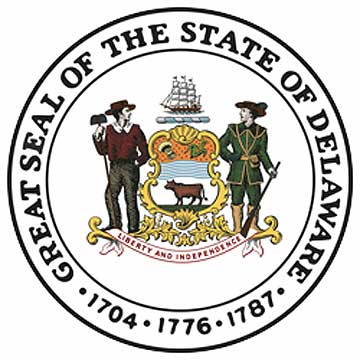Delaware Receives Overwhelming Support in Case to Prevent Political Partisanship on State Courts

The U.S. Supreme Court Accepted Governor Carney’s Petition to Hear Carney v. Adams
WILMINGTON, Del. — Delaware’s five most recent governors, the three most recent Chief Justices of the Delaware Supreme Court, the Brennan Center for Justice at NYU School of Law, the National Conference of State Legislatures, the U.S. Conference of Mayors, and the U.S. Chamber of Commerce were among the organizations to file briefs this week in the United States Supreme Court in support of Governor John Carney in Carney v. Adams.
The United States Supreme Court accepted Governor Carney’s petition to review a lower federal court decision in the case that would invalidate longstanding provisions of the Delaware Constitution requiring political balance on the state’s courts.
Delaware is seeking to protect those provisions and protect the state judiciary from the undue influence of partisan politics.
“Delaware’s judiciary has a longstanding reputation as objective, stable, and nonpartisan,” said Governor Carney. “That is largely thanks to the wisdom of those who wrote the Delaware Constitution. They understood the importance of keeping partisan politics out of Delaware’s courts, which are widely respected nationwide for their excellence and garner tremendous respect from our citizens and members of our bar. I believe it’s more important than ever to protect Delaware’s appointment process from the partisan infighting that has come to characterize the federal appointment process. We look forward to presenting our case to the Court.”
In addition to the national organizations, the Delaware State Bar Association and Widener University Delaware Law School Dean Rodney Smolla filed briefs in support of Governor Carney. In total, 11 briefs were filed in support of Governor Carney’s position. The authors included lawyers, law professors, former judges and governors, and multiple nonprofit organizations representing the interests of courts, state and local governments, and business.
From the brief:
“No one is suggesting that judicial partisanship is desirable. Rather, Delaware law pays attention to party affiliation precisely to counteract unchecked partisanship. By mandating balance, the State has created a judicial branch that is nearly universally admired for its objectivity, stability, and degree of consensus. That system is also constitutional.”
The United States Supreme Court is expected to hear the case on March 25, 2020.
###
Read the Brief for Petitioner here.
Legal Disclaimer:
EIN Presswire provides this news content "as is" without warranty of any kind. We do not accept any responsibility or liability for the accuracy, content, images, videos, licenses, completeness, legality, or reliability of the information contained in this article. If you have any complaints or copyright issues related to this article, kindly contact the author above.
